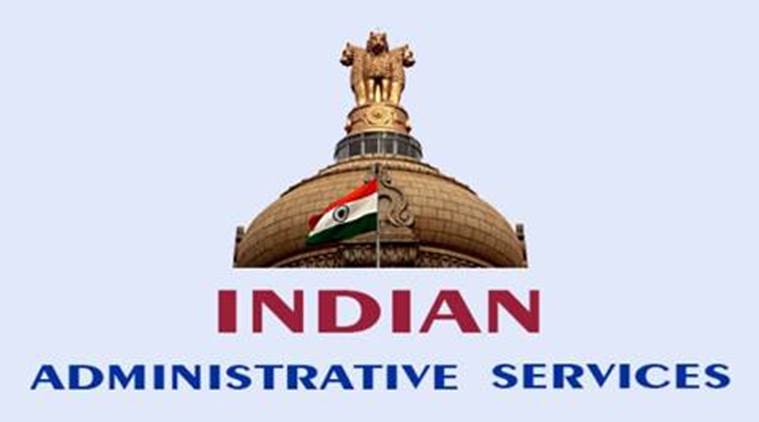
“IAS officers have the most elite job in the country” – it is a common remark many students and UPSC aspirants have heard time and again. What very few people will tell you is that the responsibilities that come with the title of an IAS officer are comparable to the power entitled to him or her. The ability of an IAS officer depends upon his or her post and pay scale. Since the formation of the Indian Administrative Service (IAS) in 1946, the control of the IAS lies in the hands of the Ministry of Personnel and Training.
Over the years, millions of Indians have dreamt about becoming an IAS officer, only to find out how difficult to screening exam is. Every year, millions take the IAS preliminary exams, but only about 25% make the cut. Out of that 25%, only about 15% move to the next round of interviews. After the interview, only around 1% of the total number of applicants succeed. The scope of the UPSC syllabus and the difficulty of the entrance test shows how exclusive the selection process for the IAS officers of our country is right now.
What are the responsibilities of an IAS officer?
Without such a stringent process it would become impossible to find the brilliant minds to maintain law & order, oversee the revenue administration and supervise the general administration for a specific area he or she is allocated. The IAS officer is likely to shoulder different responsibilities in different areas and sectors throughout his or her life. Here are some of the service responsibilities of an IAS officer –
- The framing as well as the enactment of government policies directly in consultation with the relevant minister.
- Extensive travelling and supervision during the policy implementation process.
- Personal supervision during fund disbursement that is necessary for the implementation process.
- All the IAS officers are answerable for State and Central legislatures. Therefore, it is ultimately their responsibility to sort out and prevent irregularities within their area.
- The job responsibilities of an IAS officer changes throughout his or her career, depending on his or her designation and pay scale.
- During the initial stages of his or her career, an IAS officer joins the state administration as a sub-divisional magistrate. The responsibility of a district officer is to look after the district affairs, and general law and order.
- After serving at the district level, the IAS officers also serve the Heads of Departments or State Secretariat or the Public Sector Undertakings.
- The IAS officers may move from the state to the centre under deputation provisionally.
- The highest designation any IAS officer can reach after serving at the district, and state levels are the post of Cabinet Secretary. Other prestigious designations at the centre include Additional Secretary, Joint Secretary, Deputy Secretary and the Under Secretary.
Throughout their careers, IAS officers contribute to the framing and implementation of policies at the different levels of the administration. The power to protect the present and change the future for the better rests in the hands of an IAS officer. These policies pertain to the fields of finance, politics, commerce and more. If you have dreams of changing the nation by being a part of the system, then becoming an IAS officer is a smart decision.
What changes can an IAS officer pioneer?
Many believe it to be the fanciful thinking of the wishful youth, but it is true that the current IAS officers, who serve have Undersecretaries, District Development Commissioner, and Head of Development has the authority to look after the allocation of funds for different projects. It is their responsibility to give a definitive form to the state and central government policies. It is also a part of their job to supervise the implementation of the same while in consultation with the responsible department or minister. In short, after enough experience, an IAS officer is entrusted with the responsibility of managing and supervising the daily activities of the state and central legislatures.
- An IAS officer should never give up reading and learning about the constitution and the fundamental rights of the Indian citizens. That is the only way to identify and stop exploitation from happening.
- An IAS officer should also try to inform and educate the proper authorities without creating room for confrontations. Educating others is the primary step of facilitating the change you want to see in the administration.
- While it is the concern of the IAS officers to enforce new policies and uphold the interest of the Indian citizens, it is also their responsibility to remain neutral towards political parties.
- If you are a firm believer of zero corruption and zero tolerance for corruption, you should help your friends, peers and staff climb on board. Big changes always begin as small steps.
- It is part of the IAS officer’s job to protect and provide the rights of the people in his area (district or state).
Apart from their changing roles across the district and state levels, the IAS officers can also be appointed in subordinate organizations, autonomous administrations, UN organizations, PSUs, and other international organizations like the Asian Development Bank and World Bank. Additionally, IAS officers can also be appointed as Personal Secretaries to the Ministers in the Central Government.
How and when is an IAS officer promoted?
The eventual promotion of an IAS officer entrusts them with more responsibility and more supremacy. As they climb the rungs, they go from district to state and finally to the central administration. The promotion takes place only after the evaluation of the appraisal reports, and detailed performance records of the officer in question. However, stellar performance is not enough as experience is considered to be a critical determiner of the promotion. Thus the promotion of an IAS officer also depend on how much time he or she has spent in a particular grade. Serving for a specific period at each rank is critical for every officer. The time-bound nature of their promotions has attracted some of the best talent from all over the country.
Why should you kindle your dream of becoming an IAS officer?
IAS is currently one of the only three All-India services that allow a person to be appointed by both the state governments and the central government. Apart from the high salary and other amenities that government officers typically enjoy, the IAS officers also command respect from the general populace. They are part of the exclusive officials of India, who have direct influence over the drafting and implementation of government policies. The nature of their job brings them close to relevant governing bodies, ministers and heads of departments. It is entirely within the purview of their duty to manage and supervise policies that maintain or improve the national infrastructure.






